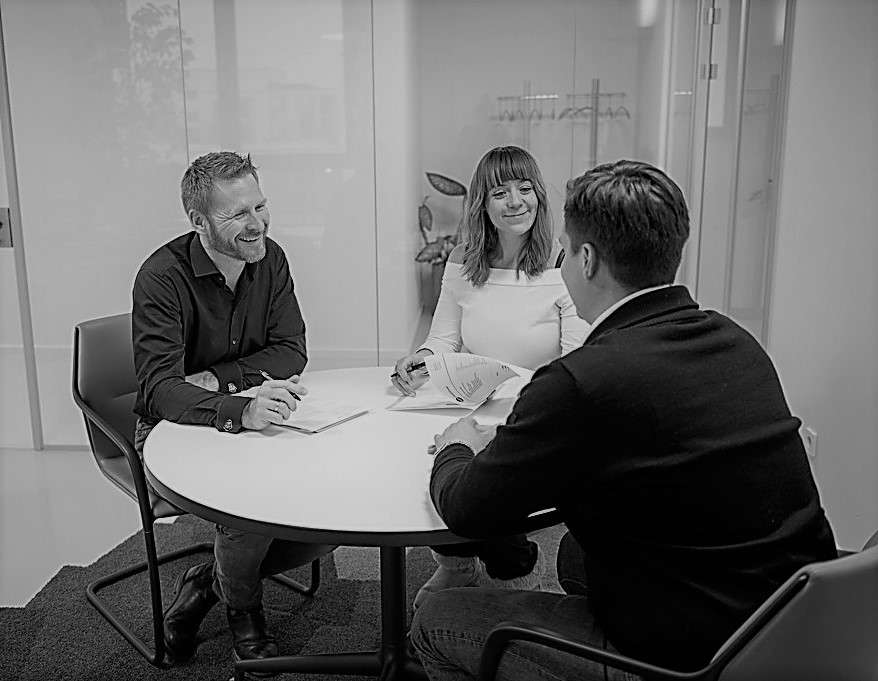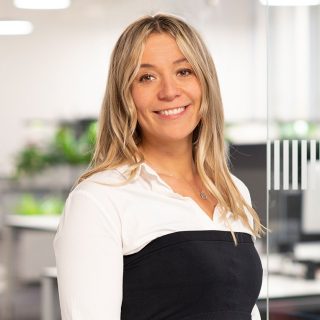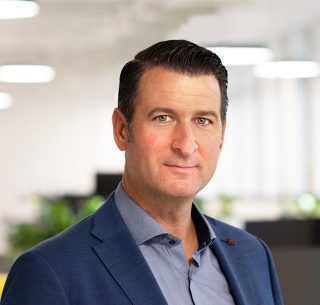
The career model at eggs
a look behind the scenes
The career model at eggs unimedia (experience and a look behind the scenes)
At the end of last year, a new career model was introduced at eggs unimedia. In the meantime, the first development meetings have taken place with almost all employees. HR manager Laura-Sophie Brunner takes stock in an interview with her colleague Andrea Ranzinger. She talks about the origins and development of the model, its special features, and the challenges that had to be overcome at the beginning.
Andrea Ranzinger (AR): The term "staff development interview" probably does not immediately trigger a cry of jubilation from every employee. Nevertheless, staff training and development is essential, especially with regard to the sustainability of a company. Looking back, what was your experience with the introduction of the new career model?
Laura-Sophie Brunner (LB): At the beginning, we all didn't know what was going to happen because the programme was new and guaranteed to bring changes. Nevertheless, each team member engaged in their career development conversation with their career partner and found individually set learning goals for themselves.
AR: So you can say that the launch of the career model was a success? What challenges did you face in developing a suitable model that would fit and apply to the entire eggs unimedia workforce?
LB: The biggest challenge was to develop a model that allows career development but does not contradict our company philosophy and the flat hierarchy and agile way of working anchored in it. Reconciling this was a big challenge.
In many companies - and especially in large corporations - the career development of an employee is equated with taking on disciplinary management responsibility for teams or entire departments. This approach to career development gives us an outdated impression. It also no longer corresponds to the reality of our individualised and, above all, digitalised world.
Therefore, we decided to develop a model that gives our team members the opportunity to develop individually based on their strengths and interests. Moreover, it had to be open to change, because constant change is - as we know - the only constant in our lives.
In our programme, everyone can decide for themselves whether they want to take on responsibility in the area of team leadership (as a mentor) within our agile teams, or whether they want to focus fully on developing their technical skills.
The 'reality check' (or perhaps better 'stocktaking') with our team members showed that the majority of our colleagues already take on elements of both responsibilities anyway. By addressing desired learning content and requirements of each area of responsibility, we were able to provide our teams with valuable input and even more opportunities for further education and training.
Our main goal of promoting our team members and developing their technical and professional expertise as well as their personality has thus succeeded in the first step.
Now we have to continue to develop our career model as an agile process. I see this as the greatest challenge and I am very much looking forward to it.
AR: Personnel development and career models are always little company secrets - especially when you go into detail. Can you nevertheless briefly summarise what is special about the "eggs model"?
LB: You are right. Indeed, I don't want to reveal our secret. But I can say this: we have succeeded in designing an agile model. This helps us to get to know ourselves - as a company - better. What I particularly like about our system is that we can transform our corporate identity into our corporate behaviour through a valuable trick. And this is done through our value model, which is part of the career model and deals with soft skills training and development. The soft skills, in turn, are aligned with our corporate values.
Our company values are:
- Openness & Honesty
- Respect & Criticism
- Responsibility & Reliability
- Speed & Competence
- Willingness to perform & helpfulness
AR: You studied sociology and did your master's degree in "value-based management". At the time you wrote your Master's thesis, you had already worked at eggs. Therefore, your master's thesis became the cornerstone and heart of the career model. How did it come about?
LB: That's a good question. When I started at eggs unimedia several years ago, I found an agile company. Then, as now, it had to master the challenge of being able to grow quickly while remaining agile and hierarchy-free.
In my Master's degree, I learned how important it is for companies to align their corporate behaviour with social values and norms. Through the HR development project, it quickly became clear to me that agile working, self-reflection and value orientation are a good basic triangle for aligning our career development. In the end, I was also able to deal intensively with this topic in the context of my Master's thesis.
AR: How did you personally experience watching the career development project grow? How are you doing now after the first round and what will happen next?
LB: This was an exciting and thrilling phase because it brought change. And I am proud of us as a company. As a living HR process, the "Career Development" project - like every project - has to undergo a review. This will certainly bring one or two changes and improvements.

